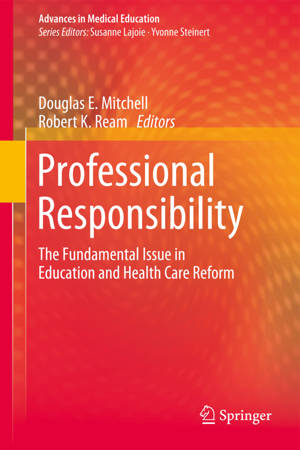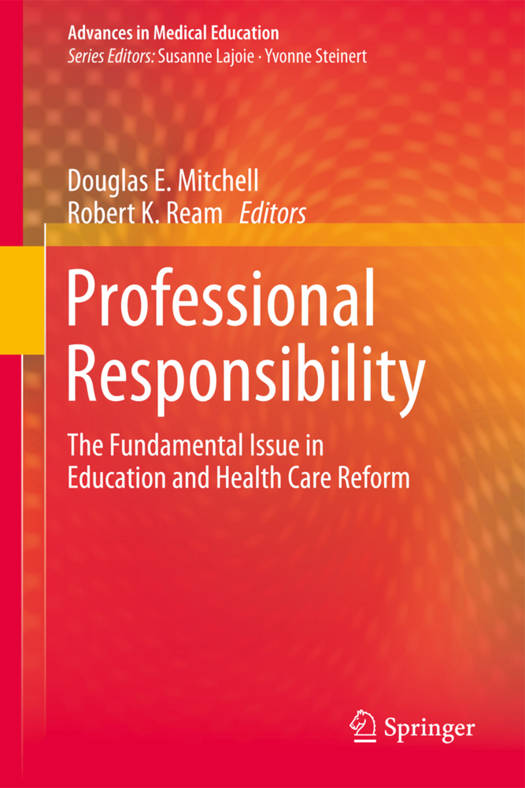
Bedankt voor het vertrouwen het afgelopen jaar! Om jou te bedanken bieden we GRATIS verzending (in België) aan op alles gedurende de hele maand januari.
- Afhalen na 1 uur in een winkel met voorraad
- In januari gratis thuislevering in België
- Ruim aanbod met 7 miljoen producten
Bedankt voor het vertrouwen het afgelopen jaar! Om jou te bedanken bieden we GRATIS verzending (in België) aan op alles gedurende de hele maand januari.
- Afhalen na 1 uur in een winkel met voorraad
- In januari gratis thuislevering in België
- Ruim aanbod met 7 miljoen producten
Zoeken
Professional Responsibility
The Fundamental Issue in Education and Health Care Reform
€ 153,95
+ 307 punten
Omschrijving
At the center of this book is the complex and perplexing question of how to design professional preparation programs, organizational management practices, public policy systems and robust professional associations committed to and capable of, maintaining confidence, trust and the other hallmarks of responsible professionalism. To do this, we need to rebuild our understanding of professional responsibility from the ground up. We describe how individuals might be prepared to engage in responsible professional service delivery, examine promising options for the reform of professional service systems and finally, outline a reform strategy for improving practice in education and medicine - two essential public services. The nexus of the reform problem in professionalism is establishing a more robust and effective working relationship between teachers and their students; between health care professionals and their patients and between educators and health professionals. Professionalism means acceptance of professional responsibility for student and patient outcomes - not just acceptance of responsibility for technical expertise, but commitment to the social norms of the profession, including trustworthiness and responsibility for client wellbeing. In the past, it may have been sufficient to assume that adequate knowledge can be shaped into standards of professional practice. Today, it is clear that we must take careful account of the ways in which practicing professionals develop, internalize and sustain professionalism during their training, along with the ways in which this commitment to professionalism may be undermined by the regulatory, fiscal, technological, political and emotional incentive systems that impinge on professional workplaces and professional employment systems.
Specificaties
Betrokkenen
- Uitgeverij:
Inhoud
- Aantal bladzijden:
- 343
- Taal:
- Engels
- Reeks:
- Reeksnummer:
- nr. 4
Eigenschappen
- Productcode (EAN):
- 9783319026022
- Verschijningsdatum:
- 10/11/2014
- Uitvoering:
- Hardcover
- Formaat:
- Genaaid
- Afmetingen:
- 156 mm x 234 mm
- Gewicht:
- 693 g

Alleen bij Standaard Boekhandel
+ 307 punten op je klantenkaart van Standaard Boekhandel
Beoordelingen
We publiceren alleen reviews die voldoen aan de voorwaarden voor reviews. Bekijk onze voorwaarden voor reviews.








